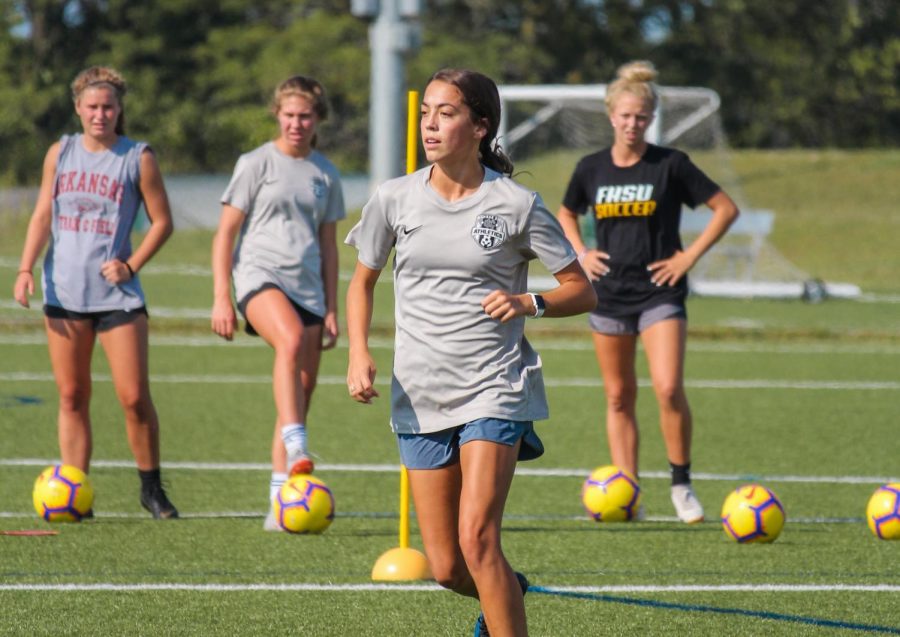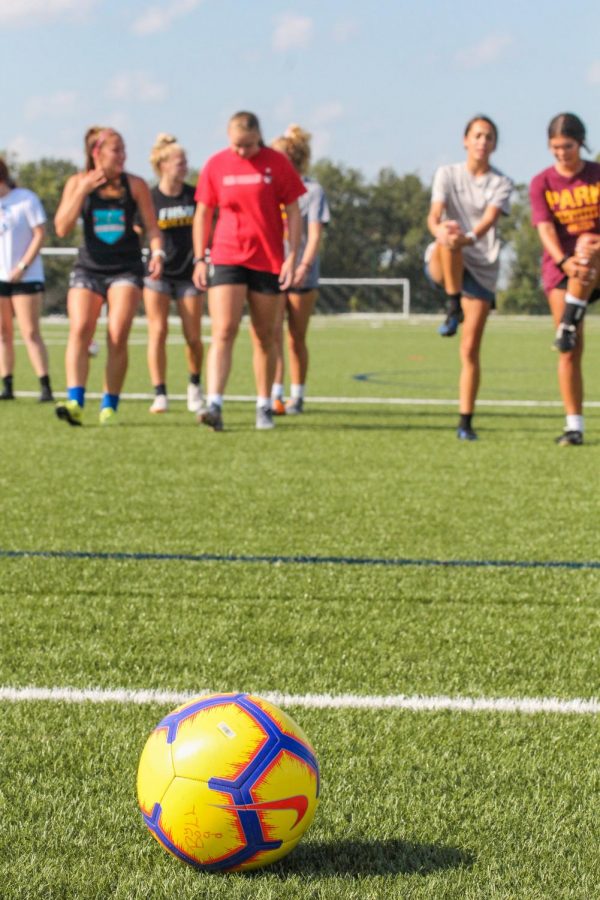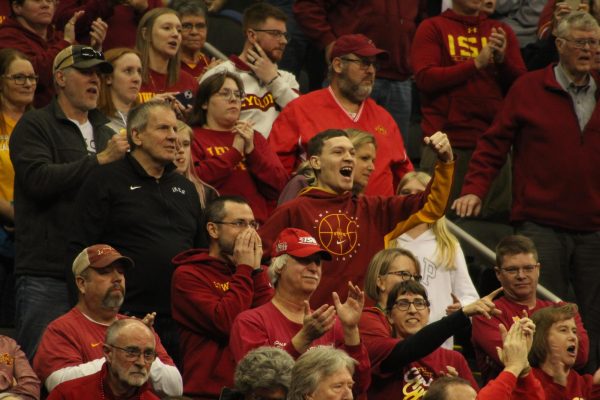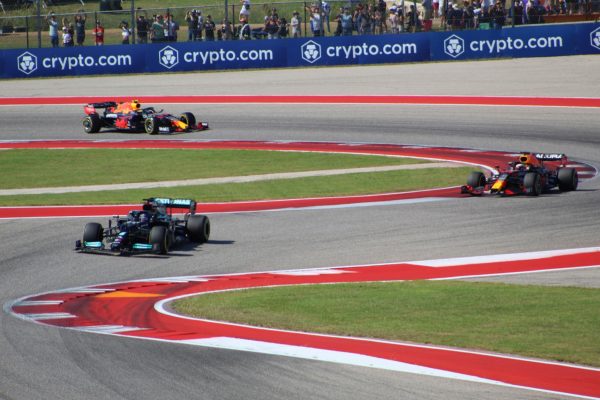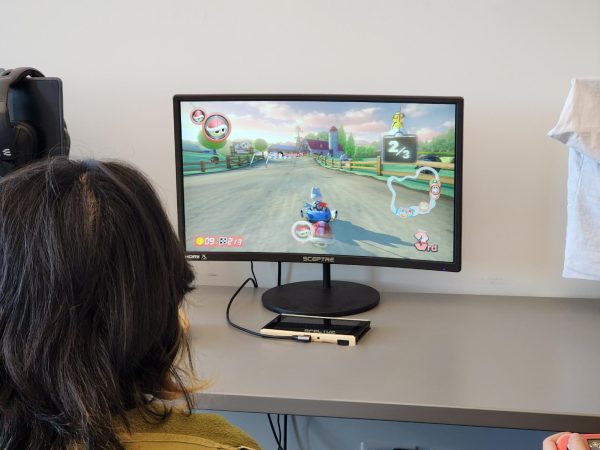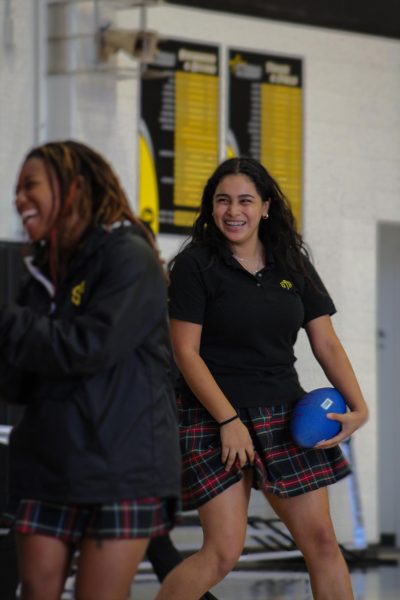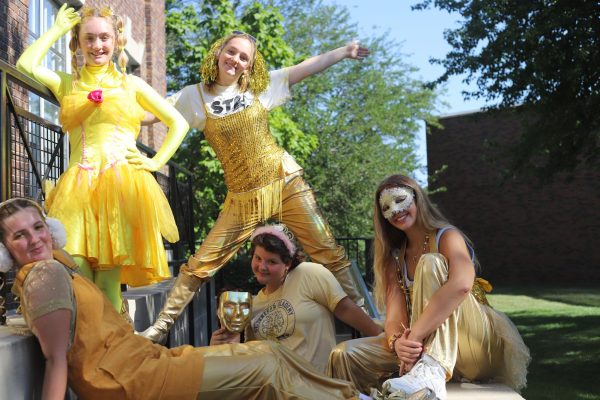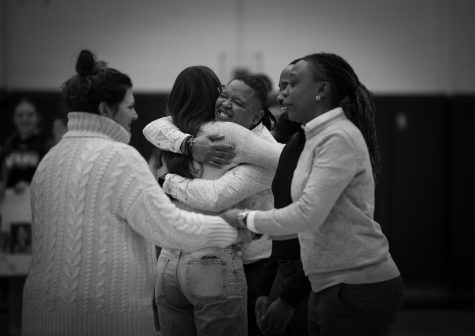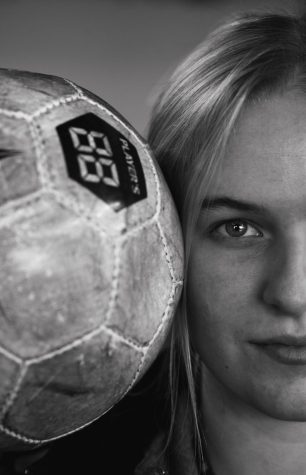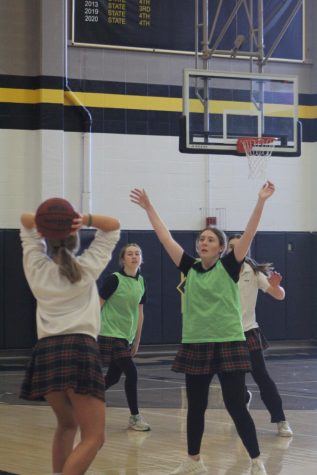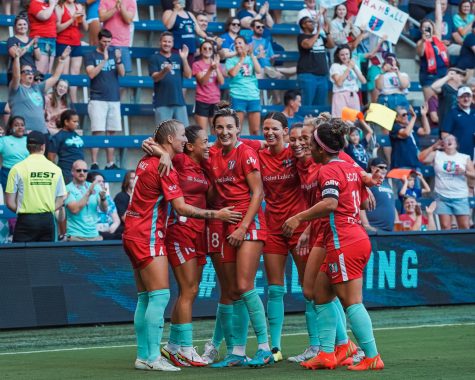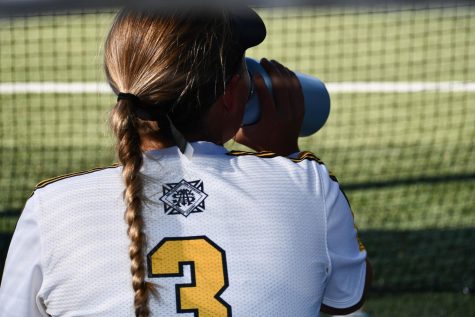USWNT: Evening the playing field
The USWNT’s fourth World Cup win this summer has had a huge impact not only on their image and how they are viewed by the public, but also on their fight for equal pay.
Senior Mollie Plas runs toward a soccer ball pass from her teammate as KC Athletics ECNL 01 players watch Aug. 29. Plas feels empowered by the movement towards equal pay for women in sports. photo by Amy Schaffer
September 19, 2019
On July 7, a deafening cry of “equal pay” could be heard ringing throughout the stadium in Lyon, France, as the U.S. women’s soccer team won their second consecutive World Cup. Although this win launched the team’s fight for equal pay into the limelight, their struggle has gone on for decades, as head soccer coach and self-proclaimed “soccer fanatic” Emily Welch can attest.
“It has pretty much been going on since I was a kid,” Welch said. “It started with that first World Cup group in [1999] — they sort of started this path for us and then now it’s my generation pushing it.”
Welch knows that this inequality between boys’ and girls’ sports starts early in children and high school kids’ league play. She has coached girls and trained with boys, and she has seen firsthand the systematic differences between the two.
“You see [inequality] sometimes with the way that the game is reffed,” Welch said. “[Referees] will call a boys’ game night-and-day different than the girls’ game because they don’t want it to be too physical. They’re going to call more fouls on the girls.”
Especially relevant to the USWNT’s fight, Welch has seen monetary disparities as well, specifically in boys versus girls leagues, or academy teams.
“You see [discrepancies] a lot with some of the funding that’s available,” Welch said. “I’ve noticed it especially when some of the club teams here have tried to develop these academies yet the boys’ teams tend to get a lot more of the funding and the top notch coaches. The girls’ side has really struggled to keep up with that. I don’t think there’s as many opportunities out there for it so there’s still a ways to go there.”
Welch has been lucky not to have experienced gender-based discrimination in her line of work but admits struggling with seeing the smaller inequalities as a coach.
“It’s frustrating,” Welch said. “But at the same time I’m happy it’s more of these small-scale things. However if we keep getting more small items like the reffing and the academy teams and the funding of that nature it’s going to compile and it’s going to unfortunately get bigger. We need to nip them in the bud while we can.”
Welch’s theory of problems snowballing into larger ones is the reality for the USWNT. On International Women’s Day (Mar. 8), the 28 players filed a lawsuit under the Civil Rights Act and the Equal Pay Act against the U.S. Soccer Federation. Since their World Cup win, they have attempted mediation, without success. According to ESPN, District Judge R. Gary Klausner has set a trial date for May.
“It’s bigger than just soccer,” Welch said. “Think of all the other women’s sports out there that experience the same thing. You’ve got the WNBA that goes through the same thing. You’ve got women’s hockey leagues that keep trying to start up and can’t because there’s no momentum behind them.”
The USWNT’s image has been greatly affected by their fourth World Cup win, now having four more than the men’s national team. Welch sees their influence reaching more Americans than ever before.
“I think it’s huge, and I think it’s big not just on young girls,” Welch said. “I think you’re starting to see it on young boys as well. You’re seeing it all over social media that everybody’s starting to wear the women’s team’s jerseys including young boys, which is incredible. They just see this empowerment and this soccer dynasty that is this women’s national team and you can really see all the young kids getting on board with it.”
Varsity soccer player Mollie Plas was excited, yet not surprised, to watch the USWNT win this summer. She comments on the USWNT’s impact on her.
“They all have different stories and it’s really interesting because I’ll watch videos of them separately talking about how they got into it and what playing on this team means to them,” Plas said. “It’s kind of empowering.”
Both Plas and Welch agree that each generation of soccer players have to keep the conversation going in order to make more concrete progress.
“I feel like every giant step forward we keep getting knocked back three to five steps,” Welch said. “So, it’s important to keep that momentum going. It’s important that we now show the next generation how to keep this momentum going because we can’t let it slow down, otherwise we’re never going to get there.”
As the USWNT already has big-name sponsors, such as Secret and Powerade, Welch proposes that this in addition to legal provisions will be the key to achieving long-awaited equal pay.
“It’s not necessarily a law that needs to be put in place, but some sort of stipulation needs to be put into contracts,” Welch said. “Another thing we can do is get more big sponsors on board for the females… if we can get that momentum to back the game a little bit more then maybe [the USSF will] say ‘hey, this is a revenue-generating sport’ and then maybe they’ll be more willing then to up the pay.”
The USWNT’s fight for equality is becoming the face of the fight for economic equality of all women. Lizzy Goodman wrote for the New York Times, “the women aren’t working as hard as their male counterparts for less money; they’re working harder for less money.”
“Since [the National Women’s team is] talking about [equal pay] now, it gives more women a voice to express how it’s happening in their society too… not just in sports,” Plas said.
Welch is optimistic about the bigger picture of gender equality, and knows that this fight is more than the USWNT or even the U.S.
“I don’t think [achieving equal pay] is impossible,” Welch said. “I think in the next five to ten years we’ll start to see more of a shift, and I think it will be bigger than just us. I think we’ll see a cultural shift within other countries as well because we already see that get built up. We need it to become more of a global effort.”



